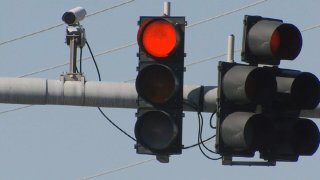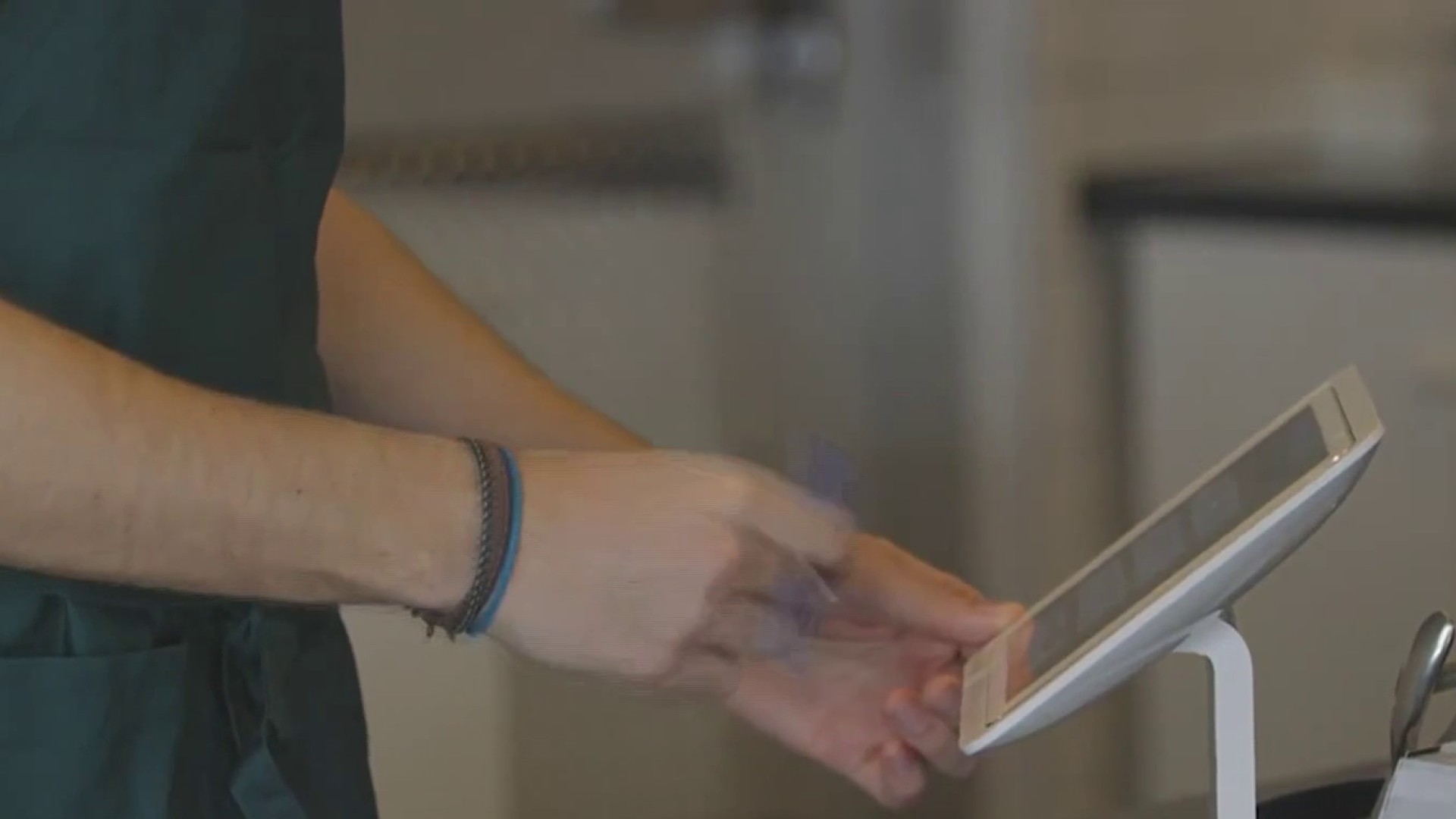
Right now, the deaths on Connecticut roads are the highest they've been in years - more than 360 total between this year and last year. 65 were pedestrians.
This session, though, lawmakers passed some legislation to try to address the issue. It is called the Vision Zero law. So how does it all work?
Ranking member of the Transportation Committee Senator Tony Hwang explains some of the details.
Mike Hydeck: So first up, the hot button issue. We're trying to fix so many things right now. I want to get to first the speed cameras and red lights. People like 'no, no, that's an invasion of privacy.' How do you feel about it? How did it get into the equation?
Get Connecticut local news, weather forecasts and entertainment stories to your inbox. Sign up for NBC Connecticut newsletters.
Tony Hwang: I think it's permissive. It allows the government of each of the respective municipalities to make that decision. And then there is really significant notification. For example, your GPS would be implemented with data that as you go within 200 yards, it'll let you know it's a red light zone. There's going to be significant signage. But ultimately, it's allowing the local control to make that decision. And it's got a sunset after three years. There was a lot of concern, a lot of engagement with regards to social equity concerns and fairness, and targeting and profiling. We wanted to address that, because ultimately, it's about safety. You know, as I was driving through the Fourth of July holiday, it's remarkable to me how many people have been lawlessness in running through red lights, and it's a safety concern. And ultimately, we're about saving lives.
Mike Hydeck: Now there is some data in other states that show this works. Was that part of the reason why we chose this option?
Tony Hwang: Well, it's a three-year sunset to evaluate the data points. But nevertheless, it is something to kind of remind people you're heading into a busy crosswalk, there is going to be a data point in regards to, we're going to not put it everywhere. But at high transitional points where there's data that show many accidents have occurred. We tread through this very, very carefully. It's been a 10-year process. But I'm glad at least we're moving forward because unfortunately, traffic safety is a huge concern. The data is just stunning. From the standpoint of wrong-way driving deaths rising over 500%. And nearly from last year to this year, motor vehicle accidents have nearly doubled, and the pedestrian deaths.
Face the Facts
Face the Facts with NBC Connecticut goes beyond the headlines, asking newsmakers the tough questions, giving an in-depth analysis of the big stories.
Mike Hydeck: You see them in small towns, big cities throughout the state. Doesn't matter where.
Tony Hwang: It's shocking. But what's even more shocking is I just had a chance to talk to a parent from MADD who lost their child 25 years ago. To hear them just this past weekend, it's as though they lost him yesterday. People who have lost loved ones in a preventable tragedy, such as our traffic deaths are still living it many years. These are preventable tragedies, Mike. And for us to move the needle a little bit, we're looking at impaired as well as distracted driving, speeding. Look, we're all guilty of it sometimes. But nevertheless, it's an awareness of education. We can pass all the laws we want. But ultimately, it's called common sense and a respect for yourself and others on the road to protect and ensure safety.
Mike Hydeck: So let's talk about the wrong-way crashes. The DOT is putting up well over I think, over 100 or 90 or so of those flashing red lights that are, if you go up the ramp the wrong way. Because we all have seen the wrong-way red lights, but in the middle of the night, if it's dark, and maybe you're sleepy, you can go up one of those. Is that part of this or was that mutually exclusive?
Tony Hwang: It's mutually exclusive. The wrong-way legislation was a combination. thanks to the leadership of Commissioner Eucalitto in transportation, but also the governor in being able to allocate funding to have technology along with warning signs, but also education. We're doing a public service program about wrong-way driving, really educating people to be conscious. But it comes down to, when over 75 to 80% of all wrong-way driving are impaired driving from alcohol or the recent cases, cannabis. So it's really about kind of being conscious, being aware. And that's why we had the blood alcohol content bill. That was a point of discussion. But impaired driving is nearly 75-80% the cause of wrong-way driving deaths. It's terrible.
Mike Hydeck: So in addition to the signage, in addition to putting more money towards safety efforts, this needs to be a multifaceted effort, right? Do you believe law enforcement has to play a role here? Because a lot of people think well, since the police accountability law was passed years ago, law enforcement is more hesitant to pull people over. Does that have to play a role in here?
Tony Hwang: It absolutely has to be a partner in that, law enforcement has to a partner. But here's the reality, staffing. You're going to have to make these decisions in regards to staffing. And ultimately, we have a recent phenomenon that we addressed this year is street takeovers. These kind of renegade get together that they create a sense of lawlessness and terrorizing communities.
Mike Hydeck: So we need to fill the ranks, is what you're saying.
Tony Hwang: So I think the bottom line is the community needs to be involved. We as legislators need to empower our law enforcement. We created a task force to allow state and local law enforcement to have the experience on street takeovers to be able to address and enforce some of the statutes. But ultimately, we're also looking to get into education, middle school education, teaching kids about safety on the roads, maybe they can teach the adults that are driving a little bit about common sense.
Mike Hydeck: You know, that voice from backseat carries a lot of weight sometimes. 'Dad, you need to slow down.' 'Mom, you need to slow down.'
Tony Hwang: It's remarkable. And I think as I said earlier, we are all guilty of it sometimes. The key is we need to learn to, not only for ourselves, but the loved ones, and those people on the road because ultimately, we want everybody to get to their destination safe. Because as I said to you earlier, those deaths are incalculable. And they continue to struggle with it with the livings.



